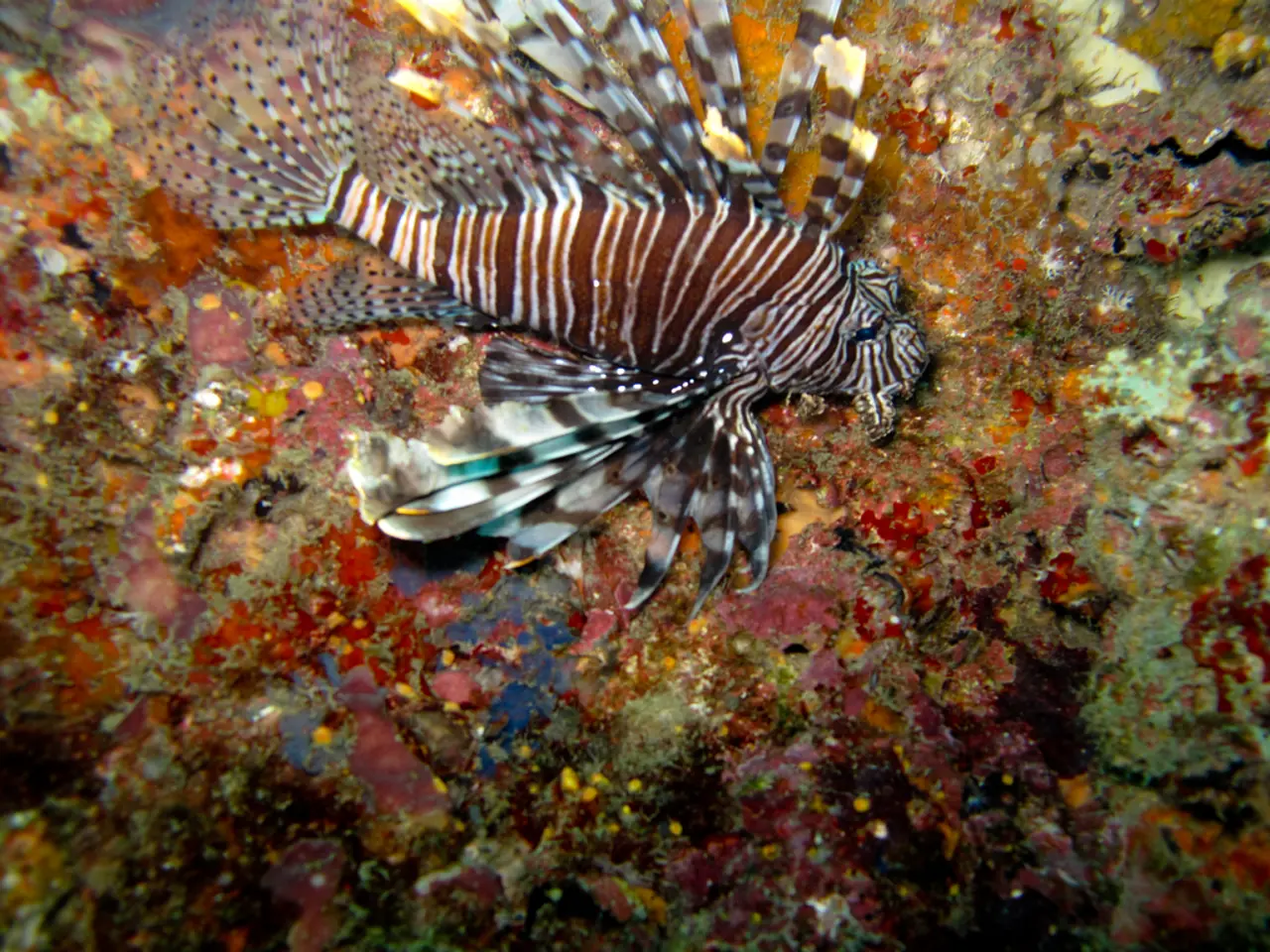Collapse of Ecosystems in a Different Nation Due to Excessive Fishing in a Specific Country
In our vast and interconnected oceans, every seafood purchase sends a message. Choosing sustainably caught fish supports better practices and encourages governments to enforce regulations, a crucial step in preserving marine life and ecosystems. However, the consequences of overfishing extend far beyond national borders, impacting economies, ecologies, and politics worldwide.
Climate change, warming oceans, and shifting currents are making fish populations increasingly vulnerable. The collapse of cod stocks off the coast of Canada in the 1990s serves as a stark reminder of this reality. Overfishing by several countries, including distant fleets, depleted these essential fish stocks, leading to a domino effect of ecological, economic, and political impacts.
The collapse of cod stocks affected not only Canada but also European fishermen who relied on migrating cod. As species move to cooler waters, countries that never had certain fish before suddenly find them in their nets, while others lose their traditional catches. This disruption of marine food webs can have far-reaching consequences, as seen with the decline of Peru’s anchovy fishery impacting distant countries dependent on anchovy fish meal.
Overfishing compromises fisheries that provide livelihoods and food security, especially in coastal and riparian communities. Zambia imposed a fishing ban on Lake Tanganyika due to overfishing, affecting local economies dependent on the lake’s biodiversity. Economic hardships can arise for fishermen and related industries, as seen with tuna canning in Spain vulnerable to declining fish stocks.
Overfishing can generate tensions between countries sharing fisheries, such as the riparian states around Lake Tanganyika that govern fishing resources collectively through the Lake Tanganyika Authority. When one country overly exploits fish stocks while others enforce restrictions, it creates a “tragedy of the commons” scenario, undermining cooperative conservation efforts.
Preventing ecosystem collapse requires international cooperation through shared governance, science-based fisheries management, law enforcement, and multilateral agreements to ensure sustainable fishery resources worldwide. Regional agreements and management bodies, such as the Lake Tanganyika Authority, facilitate coordinated policies and enforcement among countries sharing water bodies.
The U.N. FAO reports success in recovering overfished tuna populations where science-based management and oversight have been applied, suggesting that adopting such practices internationally can help other fish stocks rebound. Seasonal and self-imposed fishing bans, like China’s decades-long summer fishing ban, demonstrate national commitment, but their global effectiveness depends on broader adherence by other nations.
Agreements like the WTO Fisheries Subsidies Agreement and Port State Measures Agreement reduce harmful subsidies and illegal fishing, promoting sustainability. Effective monitoring and enforcement, including for practices like bottom trawling on the high seas, require multinational collaboration and resource sharing.
Individual choices, multiplied across millions, can help heal the world's oceans and protect distant ecosystems from collapse. Sustainable solutions to prevent collapse require international cooperation, including agreements like marine protected areas, quota systems, and joint monitoring. By making informed seafood choices and supporting sustainable fishing practices, we can all contribute to a healthier, more resilient ocean for generations to come.
Read also:
- Experiencing Life's Variety Firsthand: Gaining Insights from Life's Broad Spectrum of Experiences
- Food Regulatory Forecast | June 2023 Update from the UK
- Unraveling the Reasons Behind Perceived Aroma Appeal: Delving into Psychological, Biological, and Evolutionary Factors Influencing Scents' Attractiveness
- "Desperate plea echoes over salt granules!"








